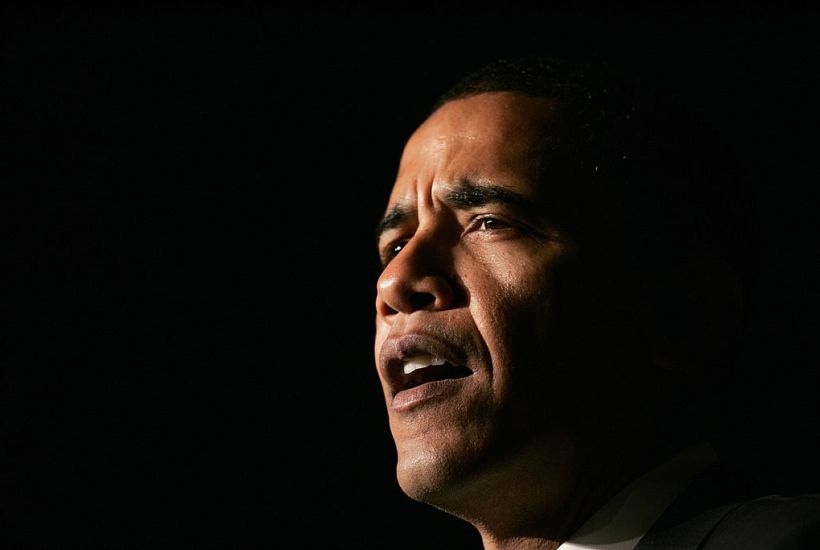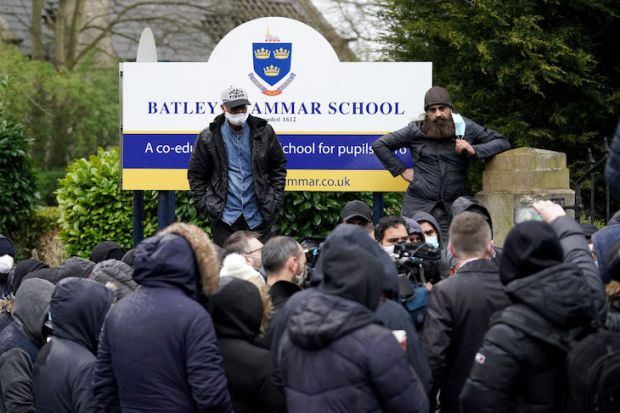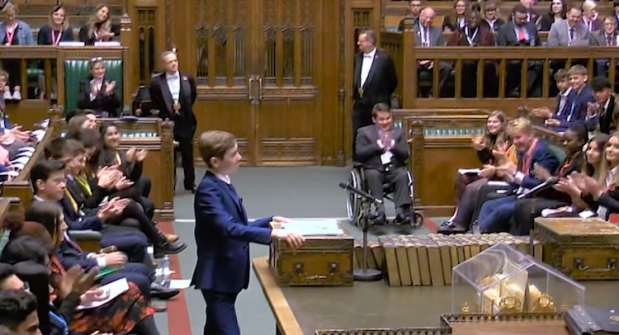This article is in The Spectator’s August 2020 US edition. Subscribe here to get yours.
The presidency of Barack Obama was heralded as a transformative event in American racial history. So why did it seem to do so little to advance racial equality or alter long-standing patterns of African American subjugation? We hear that, if he wins in November, Joe Biden, the former vice president, will restore the essence of the Obama-Biden administration and put America back on a path to racial justice. But over eight years, what did Obama achieve?
Long before Obama ran for president, a wide range of black voices questioned whether he was ‘black enough’ to represent African Americans. At Harvard Law, Obama’s election as the first black president of the prestigious Harvard Law Review drew national news coverage. But his fellow black students openly groused about his near-total absence from their protests against racial inequality at the school. In Chicago, Obama won election to a state senate seat in 1996. But Carol Harwell, his first campaign manager, concluded, ‘Barack doesn’t know what it’s like to be a black man.’ Obama grew up in Hawaii and attended the islands’ most prestigious private prep school. ‘He grew up in a white world,’ said Harwell, a black woman and lifelong Chicagoan, not in ‘a neighborhood where he feared the police officers’. As a result, Harwell believed, Obama ‘doesn’t understand the hurt that black men feel’ when they are victimized by racially discriminatory policing.
In the Illinois Senate, fellow Democrats repeatedly witnessed two of Obama’s African American colleagues angrily tell him, ‘You ain’t black enough.’ In 2000, Obama unsuccessfully challenged incumbent congressman Bobby Rush, a former Black Panther. ‘Barack is viewed in part to be the white man in blackface in our community,’ Donne Trotter, one of those two Senate colleagues, told the Chicago Reader.
After Obama became a presidential candidate in 2007, he faced this image problem at the annual convention of the National Association of Black Journalists. Purposely reaching the stage 20 minutes late for his scheduled remarks, Obama joked that his tardiness was a rejoinder to how ‘you guys keep on asking whether I’m black enough’. Yet the laughter failed to stem further complaints. When Obama seemed uninterested in black protests in Jena, Louisiana, the Rev. Jesse Jackson, Sr privately criticized him for ‘acting like he’s white’.
‘The day I’m inaugurated, the racial dynamics in this country will change to some degree,’ Obama confidently promised at that same 2007 convention. When he entered the White House in January 2009, his former law school buddy Frank ‘Hill’ Harper endorsed that prediction: ‘President Obama has sparked a transformation in the psyche, self-esteem and aspiration of young black males. His positive impact will be seen for generations to come.’ In contrast, social critic Shelby Steele warned that ‘the profound disparity between black and white Americans…will persist even under the glow of an Obama presidency’. The African American law professor Richard Ford Thompson observed that for many white Americans, voting for Obama was ‘like reparations on the cheap’.
As early as the midpoint of Obama’s first term, black academics with no personal animus saw that Obama was saying less about race than any Democratic president in 50 years. Fredrick Harris of Columbia University noted that Obama stopped talking about racial inequality once he had solidified support from black voters early in the 2008 primaries, and that Obama’s 2011 State of the Union address was ‘the first by any president since 1948 to not mention poverty or the poor’. The Harvard ethicist Tommie Shelby went so far as to decry Obama’s philosophy as ‘morally deficient and uninspiring’.
As Obama ran for re-election in late 2012, Professor Harris wrote that ‘the last four years must be reckoned a disappointment’, and that the Obama presidency had ‘already marked the decline, rather than the pinnacle, of a political vision centered on challenging racial inequality’. The tragedy, Harris believed, was that ‘black elites — from intellectuals and civil-rights leaders to politicians and clergy members — have acquiesced to this decline, seeing it as the necessary price for the pride and satisfaction of having a black family in the White House’.
‘Did Obama Fail Black America?,’ the black Harvard law professor Randall Kennedy asked. For many African Americans, Obama had ‘been a hero — but also a disappointment’. On ‘critical matters of racial justice’, he ‘posited no agenda, unveiled no vision’ and seemed ‘virtually mute’. While it was barely remarked upon at the time, Obama was an enthusiastically pro-police president. ‘I reject any narrative that seeks to divide police and communities that they serve. I reject a storyline that says when it comes to public safety, there’s an “us” and a “them” ’, he told the International Association of Chiefs of Police in October 2015. Minority communities, Obama asserted, want ‘more police presence’, not less. Obama promised to ‘work hard to make sure that the work that’s being done by law enforcement is appreciated and supported’. In particular, he argued that ‘communities that desperately need effective policing have to give police officers the benefit of the doubt’. ‘I want you to know,’ he told the police chiefs, ‘that in you we often see America at its best.’
When Obama’s presidency ended, a staggering 73 percent of blacks believed that racial discrimination was a ‘very serious problem’. Yet in late 2019, Obama was describing the US as ‘still a country that is less revolutionary than it is interested in improvement’. Eleven years on, Obama remains unable to live up to the promise of his potentially transformational victory of 2008. With protests more widespread than any since 1968 continuing across the country, Obama’s name and legacy are nowhere to be heard in the protesters’ calls for thoroughgoing policy changes.
Obama, a recent paper in the National Review of Black Politics concludes, was a ‘deracialized politician’. His ‘subjugation of racial identity’ made him unable to confront the ‘structural racial inequalities’ that mark black lives while remaining invisible to many whites. Maybe Obama was indeed not ‘black enough’ for what America — and especially black Americans — most needed from him.
David J. Garrow is the author of Bearing the Cross, a Pulitzer Prize-winning biography of Martin Luther King, Jr, and Rising Star: The Making of Barack Obama.
Got something to add? Join the discussion and comment below.
Get 10 issues for just $10
Subscribe to The Spectator Australia today for the next 10 magazine issues, plus full online access, for just $10.




















Comments
Don't miss out
Join the conversation with other Spectator Australia readers. Subscribe to leave a comment.
SUBSCRIBEAlready a subscriber? Log in